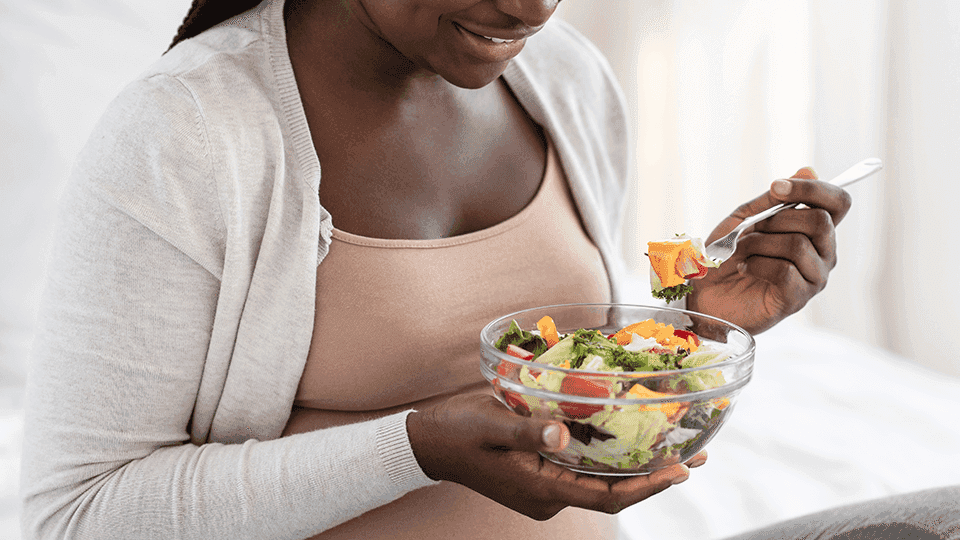
Researchers are still learning how limited or uncertain access to nutritious food can be harmful during and after pregnancy for both mother and baby. Food insecurity may increase the release of stress hormones, which has been linked to pre-term birth as well as unhealthy changes in a mother’s pregnancy weight. It has been linked to an increased risk for post-partum depression. Food insecurity can also affect a pregnant woman’s blood pressure, and so much more.
Who is food insecure?
The burden of food insecurity is borne disproportionately by Black, Indigenous and women of color. Federal statistics show Black Americans are twice as likely to be food insecure as the national average. Through another lens, one in five Black people is food insecure, according to Feeding America.
Federal food assistance programs may help. But doctors and health insurers are seeing an opportunity—and using new resources—to support women at risk.
Three programs that keep pregnant women and their families from going hungry
In Minnesota, Blue Cross and Blue Shield of Minnesota is offering mothers and families in need clinically tailored meals and food boxes as well as nutritional coaching. Members can start as early as 20 weeks into their pregnancy and continue through the second month after birth. The program is a partnership with Project Well and Second Harvest Heartland, which will deliver the food and the coaching. Members will also be connected to food programs and solutions to meet other social needs through case management.
In New York, Excellus BlueCross BlueShield is working with FoodLink, a local food bank, to pilot a nutrition program designed to identify at-risk moms and connect them to nutritional education and resources. Experts from Excellus BCBS say providing boxes of food is only one step in addressing food insecurity. Empowering mothers with culturally competent nutrition education can do even more to keep moms and their children healthy.
Blue Cross and Blue Shield of Kansas City works with local food banks and food distributions centers to help members who are pregnant or new moms. Mothers who continue to experience food insecurity are connected with a state food assistance program. The health plan trains front line providers to screen women for food insecurity. Then Blue Cross and Blue Shield of Kansas City community health workers connect those members to resources to meet their social needs and follow up with providers.
Food as healthcare
Healthcare providers and health insurers are increasingly involved in meeting more than just medical needs for their patients. They recognize that having enough food to eat, or access to transportation, among other social needs, are just as critical for good health as a blood test or a sonogram. And right now, there may be more needs to meet. The economic crisis brought on by the pandemic has left more Americans out of work, living in poverty and struggling. Programs like these will be critical for catching those who might otherwise fall through the cracks.
Blue Cross and Blue Shield of Minnesota, Blue Cross and Blue Shield of Kansas City and Excellus BlueCross BlueShield are independent licensees of the Blue Cross Blue Shield Association, an association of independent, locally operated Blue Cross and Blue Shield companies.